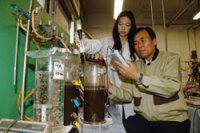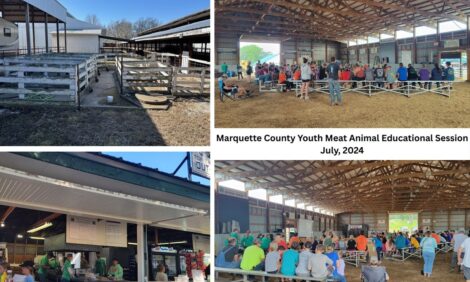



Scientists Develop Microbe Purifier For Livestock Waste
KOREA - Local scientists have developed a highly effective microbe treatment to process contaminated livestock wastewater, a state-run laboratory said Thursday.
The team, led by Park Wan-cheol at the Korea Institute of Science and Technology (KIST), said they have used a local form of leaf mold and fermented soybean paste to purify wastewater contaminated by livestock waste, which is one of the chief culprits of rural environmental contamination.
"Tests conducted at a water treatment facility in Hapcheon, South Gyeonsang-do Province showed a purification rate of 99 percent for heavily polluted livestock waste," the environmental-engineering scientist said.
Hapcheon County had incorporated the new technology into its treatment facility and successfully processed 150 tons of wastewater created by 25,000 pigs every day. The biological oxygen demand level of the wastewater that came from the pig farms reached 20,000-30,000 parts per million (ppm) before being treated, but fell to 10 ppm afterwards.
The KIST researcher added that if the leaf mold and fermented soybean are made into a solid "Bio-Clod" and allowed to release microbes slowly, it can be used for up to 10 years. This he said translates into a genuinely cheap operating cost.








